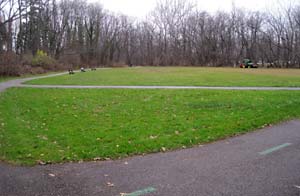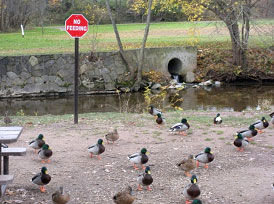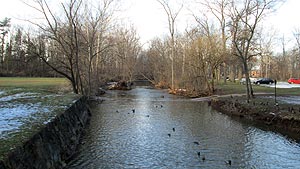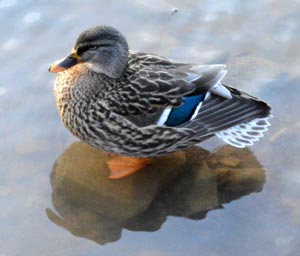

At nearly 39 square miles, the Big Creek watershed is one of the most urbanized and impervious tributaries to the Cuyahoga River. A total of six percent (2.5 square miles) of open space remains within this watershed. Due to urbanization, Big Creek’s original drainage pattern, wetlands, floodplain, and riparian areas have been severely altered and replaced with concrete-lined, channelized streams, long culverted segments, spillway structures, significant development and encroachment within the floodplain. Consequently, surface runoff has increased in total volume, peak rates, and pollutant loads while groundwater recharge and base flow conditions have decreased.
Big Creek is listed as impaired for aquatic life uses due to organic enrichment and low dissolved oxygen, nutrients, siltation, habitat degradation, and bacteria. A Total Maximum Daily Load was approved by United States Environmental Protection Agency (EPA) in 2003 for the lower Cuyahoga River. Urban stormwater and combined sewer overflows are both identified as causes of impairment. Big Creek is also part of the Cuyahoga River Area of Concern.
In 2006, Big Creek Connects, then Friends of Big Creek (BCC), with support from the Cuyahoga River Community Planning Organization, developed a state-endorsed Balanced Growth Plan. The plan discusses that a conservation or restoration strategy should include implementation of structural (e.g., stormwater basin) and nonstructural (e.g., preservation) practices to improve stream health and reduce erosion and stormwater runoff. The Plan suggests that structural restoration practices such as stormwater retrofits are more effective in urban watersheds like Big Creek.
BCC identified stormwater best management practice retrofitting in their Ohio EPA endorsed Balanced Growth Plan as an implementation activity that can treat stormwater pollutants, minimize channel erosion, and help restore stream hydrology. BCC conducted further evaluation of 156 potential retrofit projects in the watershed as part of the Big Creek Watershed Stormwater Retrofit Ranking Project. The Ranking Project prioritized projects according to their potential for water quality treatment, ecological and community benefits, and improved flood control balanced against site constraints and resulted in development of conceptual BMP retrofit designs for the three highest ranking sites. The Fern Hill Stormwater Treatment Wetland project was ranked in the top three out of 156 possible retrofit locations in the watershed.
The project was a proposed stormwater retrofit at the downstream outlet of a 50.8 acre watershed which currently had no known water quality, flood control, or rate control treatment. The goal of the retrofit was to provide water quality treatment meeting the Ohio EPA’s water quality volume while creating a public amenity adjacent to Big Creek. A stormwater wetland retrofit was chosen as it represents a habitat that would be common adjacent to a stream and provided for a demonstration opportunity of this habitat type in the city, which is fairly uncommon.
The retrofit included modification to an existing 36-inch storm sewer that discharged directly to Big Creek. The proposed retrofit included diverting the first ¾-inch of rainfall to a newly constructed pretreatment basin and wetland within the Cleveland Metroparks property prior to discharging back into the existing 36-inch storm sewer. A trail between the pretreatment cell and wetland was proposed to connect to existing trails and provide for maintenance access.
The conceptual planning level cost estimate for this stormwater retrofit ranged between $192,000 and $304,000 and included probable construction costs, design, survey, permitting, and a 25 percent contingency. The lower cost range assumed a riprap-lined pre-treatment cell bottom, a minor flow diversion structure, and a mix of seed and plugs for the wetland planting. The upper cost range assumed a concrete-lined pretreatment cell bottom, more extensive flow diversion structure, and plugs for the majority of wetland plantings. The overall cost per square foot for this stormwater retrofit conceptual planning level cost estimate ranged from $5.73 to $9.08 per square foot based upon the size of the wetland and pre-treatment cell.
Cleveland Metroparks assumed the role of design and engineering for the project. See the plan as it developed at Plan.

Before the wetland

Original 36-in. outfall - west bank of Big Creek

Looking downstream (north)

Local resident